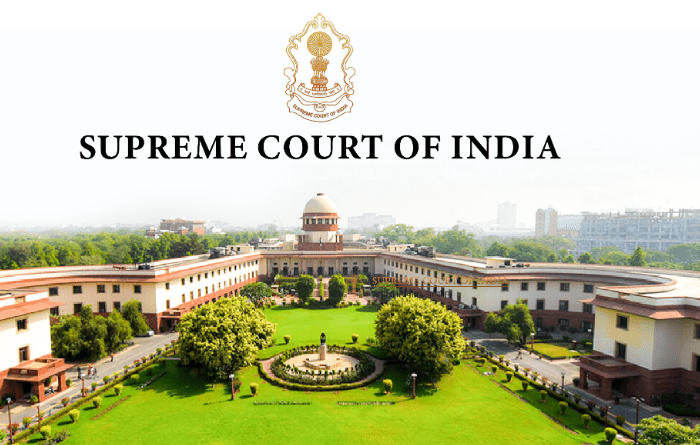
The Supreme Court has submitted the question of whether the GST on lease/rent payments is constitutionally lawful to the constitution bench of nine judges.
It has been made clear by the justices M.R. Shah and Karol that there is no halt to the tax recovery, and the revenue is free to do so in accordance with the law.
In a Writ Petition submitted to the Bombay High Court, the petitioner, Myrayash Hotels Pvt. Ltd., contested the constitutionality of paragraphs 2 and 5(a) of Schedule II to the Central Goods and Services Tax Act of 2017 and the Goa Goods and Services Tax Act of 2017.
The petitioner argued that only “goods and services” are subject to GST under Article 246A of the Indian Constitution. There is no “service” given by the lessor/landlord to the lessee/tenant under a lease or rent agreement. Therefore, there cannot be a GST duty on the same. According to Entry 49 List II of the Seventh Schedule of the Indian Constitution, only the State Legislatures have the authority to impose taxes on transactions involving immovable property. As a result, on such a lease/rent transaction, GST cannot be assessed under Article 246A.
According to the petitioner, when a lease is granted by the lessor/landlord to the lessee/tenant via a lease, all of the lessor’s/landlord’s rights and enjoyment over that immovable property are renounced and handed to the lessee/tenant for the duration of the lease or rent period.
The Bombay High Court ruled that, as long as the tax does not fall under List II of the Seventh Schedule and that the Service Tax was enacted under the residuary power of legislation, one cannot contest the assumption of Parliament that there is a service element to the lease of land.
The petitioner has submitted an SLP to the Supreme Court of India contesting both the Bombay High Court’s ruling and the constitutionality of the GST levy on lease/rent payments.
When speaking on behalf of the petitioner, Senior Advocate Kavin Gulati argued that the GST levied on such lease/rent agreements was wholly unconstitutional and that the petitioner shouldn’t be held responsible for paying the GST on such lease rentals, premiums, or payments made in relation to the lease.
When accepting the petitioner’s request for permission to appeal, the Supreme Court of India agreed to accept the appeal, ordered it to be listed before the Constitution Bench of 9, and tagged or related the case with civil Appeal no. 4487 of 2010.
SRISHTI BHARDWAJ, B.COM LL.B





0 Comments